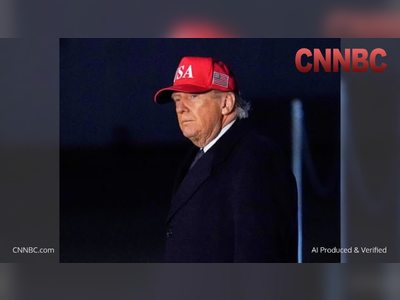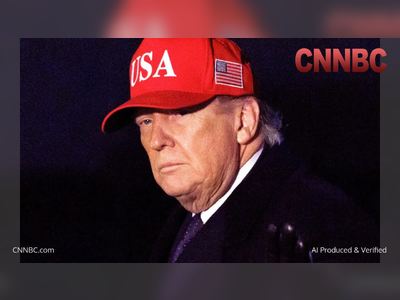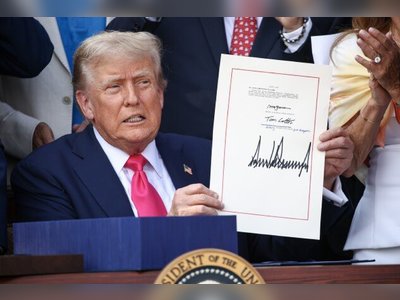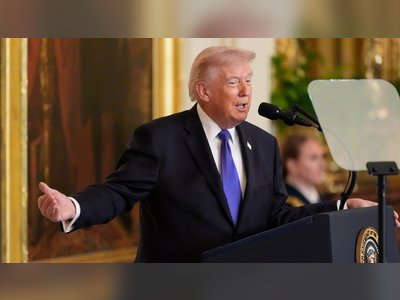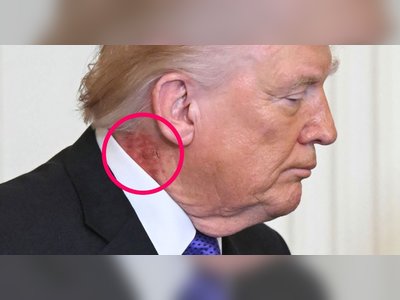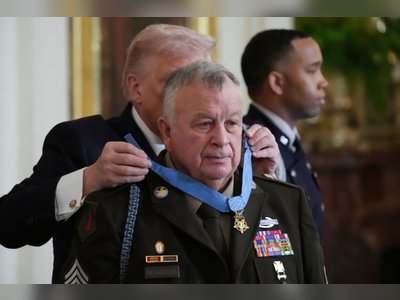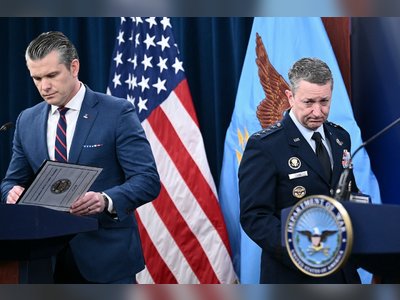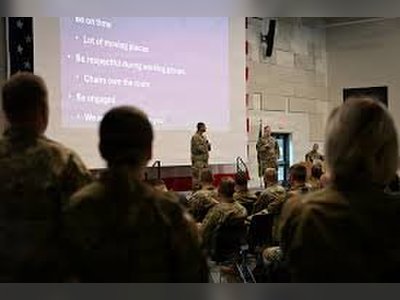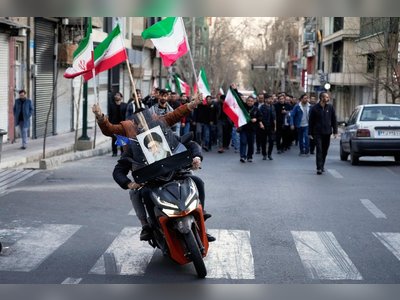
US Vice President JD Vance Critiques European Leadership at Munich Security Conference
Vance's address raises tensions over free speech, immigration, and shared democratic values between the US and Europe.
United States Vice President JD Vance delivered a controversial speech at the Munich Security Conference on Friday, where he criticized European leaders for what he termed a suppression of free speech and failure to adequately manage immigration.
Speaking before a largely silent audience, Vance's remarks deviated from the anticipated focus on the ongoing war in Ukraine, as he instead spotlighted internal challenges facing European democracies.
Vance argued that the primary threat to Europe did not come from external adversaries like Russia or China, but from a retreat within its own democratic values.
He questioned whether shared agendas between the US and Europe still existed, suggesting that European politicians were increasingly out of touch with their voters' concerns.
"What I worry about is the threat from within," he stated, provoking a cautious response from European officials.
His speech sparked immediate backlash from European leaders, notably from German Defence Minister Boris Pistorius, who deemed the comparison of certain European conditions to those in authoritarian regimes as "unacceptable." Vance’s remarks drew polarized reactions; while they were condemned by some EU officials, they received positive coverage from Russian media, highlighting a growing rift in transatlantic relations.
During his address, Vance emphasized that dismissing voters' concerns and curtailing media freedoms were detrimental to democracy.
He stated, "Democracy will not survive if people's concerns are deemed invalid or not worth being considered." He also alluded to the political climate in Europe, urging for more inclusive dialogues that included representatives from populist parties—a controversial request given the historical context concerning far-right movements in the continent.
The vice president further criticized various instances he viewed as evidence of declining free speech across Europe, including the cancellation of elections in Romania and legal consequences in Sweden related to protests against religious symbols.
He expressed a concern over the treatment of dissenting political voices, arguing that it was crucial to address the needs of constituents, regardless of party affiliation.
As tensions were heightened by his remarks, EU foreign policy chief Kaja Kallas commented that discussions should focus on larger threats, specifically referencing Russia’s actions in Ukraine.
She condemned Vance’s remarks as overly combative when the priority should remain unified against external aggressions.
Vance's comments were made in the context of heightened security discussions relating to the ongoing conflict in Ukraine, where both US and European leaders have grappled with forming unified strategies against Russia.
The conference had previously anticipated discussions around potential peace talks, reflecting the urgency to align on strategies for combatting shared challenges.
In a post-speech development, Vance met privately with Alice Weidel, the leader of Germany's far-right Alternative für Deutschland (AfD), while choosing not to engage with German Chancellor Olaf Scholz, signaling a deliberate departure from typical diplomatic interactions.
As the conference unfolded, Ukrainian President Volodymyr Zelenskyy and Vance concluded talks on potential cooperation regarding critical minerals, though no agreement was reached before the conference ended.
This reflected the ongoing complexities of US-Ukrainian relations, especially in the context of securing support amid legislative shifts in the US.
Overall, Vance's address at the Munich Security Conference has raised significant questions regarding the future of US-European relations, especially as both regions navigate the dynamics of democratic values, military cooperation, and the pressures of internal and external political landscapes.
Speaking before a largely silent audience, Vance's remarks deviated from the anticipated focus on the ongoing war in Ukraine, as he instead spotlighted internal challenges facing European democracies.
Vance argued that the primary threat to Europe did not come from external adversaries like Russia or China, but from a retreat within its own democratic values.
He questioned whether shared agendas between the US and Europe still existed, suggesting that European politicians were increasingly out of touch with their voters' concerns.
"What I worry about is the threat from within," he stated, provoking a cautious response from European officials.
His speech sparked immediate backlash from European leaders, notably from German Defence Minister Boris Pistorius, who deemed the comparison of certain European conditions to those in authoritarian regimes as "unacceptable." Vance’s remarks drew polarized reactions; while they were condemned by some EU officials, they received positive coverage from Russian media, highlighting a growing rift in transatlantic relations.
During his address, Vance emphasized that dismissing voters' concerns and curtailing media freedoms were detrimental to democracy.
He stated, "Democracy will not survive if people's concerns are deemed invalid or not worth being considered." He also alluded to the political climate in Europe, urging for more inclusive dialogues that included representatives from populist parties—a controversial request given the historical context concerning far-right movements in the continent.
The vice president further criticized various instances he viewed as evidence of declining free speech across Europe, including the cancellation of elections in Romania and legal consequences in Sweden related to protests against religious symbols.
He expressed a concern over the treatment of dissenting political voices, arguing that it was crucial to address the needs of constituents, regardless of party affiliation.
As tensions were heightened by his remarks, EU foreign policy chief Kaja Kallas commented that discussions should focus on larger threats, specifically referencing Russia’s actions in Ukraine.
She condemned Vance’s remarks as overly combative when the priority should remain unified against external aggressions.
Vance's comments were made in the context of heightened security discussions relating to the ongoing conflict in Ukraine, where both US and European leaders have grappled with forming unified strategies against Russia.
The conference had previously anticipated discussions around potential peace talks, reflecting the urgency to align on strategies for combatting shared challenges.
In a post-speech development, Vance met privately with Alice Weidel, the leader of Germany's far-right Alternative für Deutschland (AfD), while choosing not to engage with German Chancellor Olaf Scholz, signaling a deliberate departure from typical diplomatic interactions.
As the conference unfolded, Ukrainian President Volodymyr Zelenskyy and Vance concluded talks on potential cooperation regarding critical minerals, though no agreement was reached before the conference ended.
This reflected the ongoing complexities of US-Ukrainian relations, especially in the context of securing support amid legislative shifts in the US.
Overall, Vance's address at the Munich Security Conference has raised significant questions regarding the future of US-European relations, especially as both regions navigate the dynamics of democratic values, military cooperation, and the pressures of internal and external political landscapes.


